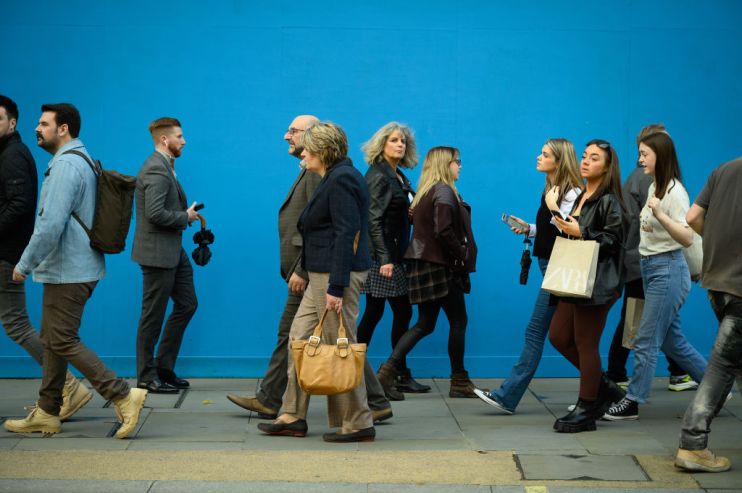Cost of living squeeze already biting UK economy as experts warn worst is still to come

The damage the cost of living squeeze is inflicting on UK households is already starting to weigh on the economy as top forecasters warn the worst effects of spiralling living standards are yet to come.
A fresh flurry of data released today revealed consumers are slashing spending to alleviate pressure on their finances caused by inflation reaching a three decade high.
UK households will be hit by the sharpest drop in living standards since 1956 this year, according to the government’s fiscal watchdog, Office for Budget Responsibility (OBR).
Independent analyses of Chancellor Rishi Sunak’s spring statement added more woe to the UK’s economic outlook.
The think tank the Resolution Foundation estimates real incomes will fall two per cent across the whole of this parliament, marking it the worst on record for living standards.
Meanwhile, Paul Johnson, director of another think tank, the Institute for Fiscal Studies (IFS), slammed Sunak’s decision to hike national insurance while cutting the basic rate of income tax by 1p in the pound as “indefensible”.
All of the windfall households will receive from lower income tax bills will be offset by fiscal drag and a 1.25 percentage point national insurance uplift and other tax raising measures, according to the IFS.
Economic growth this year will be 2.2 percentage points slower than first thought by the OBR, primarily caused by Russia’s invasion of Ukraine sending inflation to a potential peak of around nine per cent.
Prices are already 6.2 per cent higher than they were a year ago, the fastest rate of acceleration since 1992.
In response, consumers are slashing spending.
Expected retail sales fell to minus 23 per cent this month and will remain below historical standards in the coming months, according to the Confederation of British Industry.
Concern about the impact the Ukraine war will have on the trading environment and costs eroded business confidence to its lowest since October 2020, when the country was still in the teeth of the most onerous Covid-19 curbs, according to the latest purchasing managers’ index from S&P Global.
The second quickest rise in costs led firms to raise prices to protect margins at the fastest pace since records began in 1999.
Ouput in the UK private sector edged back to 59.7 this month from February’s eight-month high of 59.9. A reading above 50 indicates a majority firms reported growth.
Spending is “gradually trending back towards pre-Covid levels, as households’ real disposable income comes under mounting pressure,” Samuel Tombs, chief UK economist at Pantheon Macroeconomics, said.
The government’s decision to saddle households with the heaviest tax burden since the 1940s will contribute to the slide in real incomes this year.
Tombs “expect[s] the recovery in households’ real expenditure to slow to a crawl over the coming months” as a result.